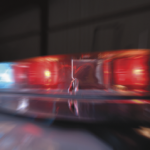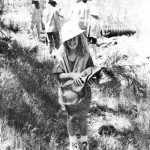
Although fewer than 15 people attended the public hearing on Measure G, the Idyllwild Fire Protection District (IFPD) commissioners fielded dozens of questions during the 90-minute session.
Measure G, which the commission approved in April, authorizes increasing the current unit fee from $65 to a maximum of $130 annually. The money would be available for fire suppression and emergency medical services.
IFPD President Pete Capparelli moderated the session and his commission colleagues all participated in responding to the audience’s questions.
One of the first questions was whether the commission would adopt the new ceiling immediately if the measure passes. Capparelli replied that, in his opinion, a $35 increase to $100 would be sufficient and appropriate in the first year of the higher cap.
“If Measure G passes, the commission will decide how much to increase it,” he replied. “My personal recommendation is $35 to bring it to $100. That would provide us with an additional $110,000 to build reserves.”
Another issue that the audience pursued was how the additional funding would be used.
Capparelli explained that the agency’s reserves have been drained. The principal needs are to rebuild its reserves, for fire station maintenance and equipment, both for capital and for employees’ safety.
“I can’t promise every penny to reserves, some may go to salaries, but that is not the primary reason,” he stressed to those attending the hearing.
During the discussion, Commissioner Jeannine Charles-Stigall and Fire Chief Norm Walker provided several specific examples of what the department needs or might need over the next few years. New turnouts for firefighters and equipment to keep them clean were prime examples.
When asked what is a turnout, Firefighter Jack Peckham held one for everyone to see and explained that it was heat and fire resistant clothing that “allows me to go into a building at 400 degrees.”
Other IFPD needs included repairing of the concrete surfaces at the entrance to the station bays, resurfacing of the parking lot, completing the remodeling of the station entrance, replacing the station’s exterior siding, purchasing new radio transmission equipment (pursuant to a Federal Communication Commission directive), and acquiring replacement thermal imaging equipment, ambulances and non-fire vehicles.
Capparelli and his colleagues promised that the decisions on creating a capital reserve fund and how that money would be used would be made in open meetings.
Some attendees expressed disappointment that the department did not have the list prepared and estimated costs for the individual projects available.
Walker felt the current fire engine, brush truck and ladder truck had many years of service remaining. However, Commissioner Ben Killingsworth reminded the group that building reserves was also necessary for the day this equipment might need replacement.
If Measure G passes, IFPD has until Sept. 15 to notify the Riverside County Assessor of the new unit fee rate. According to Killingsworth, IFPD received a specific extension from the Aug. 10 deadline because the election is scheduled after the notification deadline.
If Measure G fails, Walker said he may have to cut the department’s budget by $80,000 to balance it. Capparelli said he would support going back to the voters at the next opportunity to request additional funding.
“Our expenses are going up and the revenue declining,” he emphasized. “It’s difficult to balance the budget and try to provide the local service we expect.”
When IFPD commission candidate Jerry Buchanan asked why the hearing had occurred so close to the election date rather than sooner, Capparelli explained that the measure had been approved in April and the vote was not a surprise, but agreed.
“In retrospect, it should have been earlier,” he said. “Maybe some voters won’t get educated, but its been talked about.










